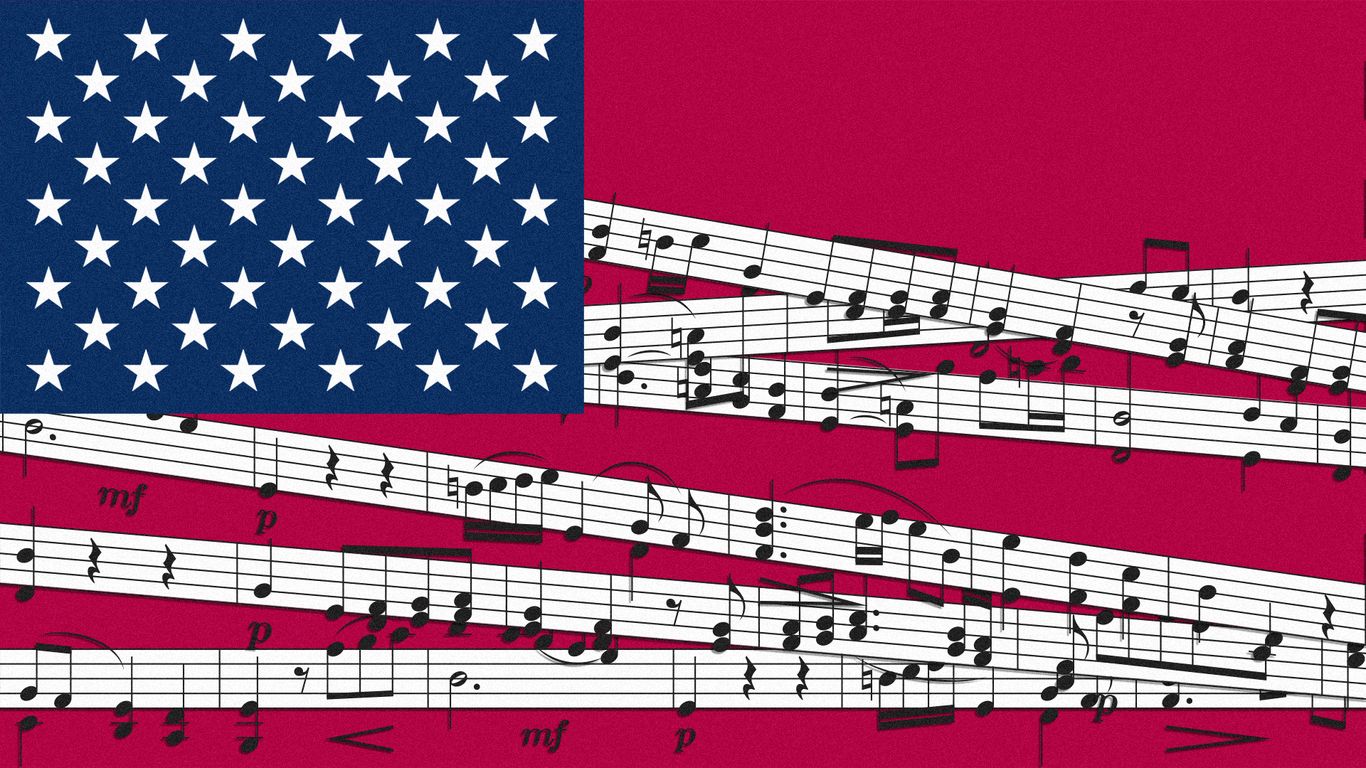#protest-music
#protest-music
[ follow ]
#bruce-springsteen #minneapolis #immigration-enforcement #minneapolis-protests #rabiah-kabir #improvisation
fromSlate Magazine
1 week agoThese Songs Kill Fascists
First, they take up It Was Just an Accident, the Cannes Palme d'Or-winning film by Iranian filmmaker Jafar Panahi. Inspired in part by Panahi's own experience being imprisoned for critiquing the Iranian government, his new film-made in secret from the regime- holds back little in its sharp political critique, rage, and... a surprising amount of comedy. Not surprising in its amount of comedy- but maybe in its frequently anti-authoritarian politics-is Mel Brooks: The 99 Year Old Man!
Film
Film
fromwww.amny.com
1 week agoFugs Film! chronicles America's most subversive band of the sixties, from folkways to FBI files amNewYork
The Fugs were an East Village 1960s band mixing anarchic, theatrical rock, poetry, and protest, influential on underground culture and controversial for explicit, satirical songs.
fromThe Conversation
1 week agoClergy protests against ICE turned to a classic - and powerful - American playlist
On Jan. 28, 2026, Bruce Springsteen released "Streets of Minneapolis," a hard-hitting protest against the immigration enforcement surge in the city, including the killings of Renee Good and Alex Pretti. The song is all over social media, and the official video has already been streamed more than 5 million times. It's hard to remember a time when a major artist has released a song in the midst of a specific political crisis.
Philosophy
US politics
fromLos Angeles Times
1 month agoCain Culto and Xiuhtezcatl's 'Basta Ya!' proves a potent anti-ICE anthem
The cry "Basta ya" has been repeatedly repurposed for anti-imperialist, anti-violence, and immigrant-rights resistance, recently fueling an anti-ICE anthem after Renee Nicole Good's killing.
fromwww.theguardian.com
2 months agoSounds like activism: musicians who fight for change in pictures
Photographer Janette Beckman and curator Julie Grahame have organized a one time fundraiser for the ACLU that showcases images of musicians who have recorded protest songs or are known for their activism. Forty-three photographers have donated images of 50 artists, from John Lennon to Nina Simone to Bad Bunny, and 100% of the profits will go towards the ACLU and their efforts to protect equality, freedom and rights.
Social justice
fromSan Francisco Bay Times
3 months agoSerenading ICE - San Francisco Bay Times
That also applies to the elder ones! We're not sitting around knitting and playing Canasta. You've read about my new musical venture in a previous article. The short version is that we've started a new chorus for Q+ Elders and Allies: the Portland Sage Singers. We only started last February. But, off we went, faster than any of our aging legs could carry us.
US politics
fromenglish.elpais.com
3 months agoLos Jornaleros del Norte denounce harassment: They've followed us, sent us hate mail'
“Racist as you're full of hate, why don't you go straight to hell, goes the chorus. The song, La Cumbia de la Migra, belongs to Los Jornaleros del Norte, a group of migrant musicians who for 30 years have accompanied marches and strikes in Los Angeles with guitars, drums, and an unwavering conviction: to sing in order to survive. Omar Leon (Michoacan, 1976), the group's keyboardist, accordionist, and composer, doesn't consider himself a star.”
US politics
fromwww.dw.com
4 months agoHow are 'La Cucaracha' and 'Yankee Doodle' revolution songs? DW 10/13/2025
The word "revolution" tends to conjure images of protests, rage, bloodshed, reshaped borders or toppled despots. But a look at the history of revolutions sometimes reveals a "mellower" aftermath: songs birthed in turmoil, which have stood the test of time. Across centuries and continents, political and social upheaval have seen songs being composed either during an uprising or repurposed from folk traditions into tunes of resistance.
History
fromwww.mercurynews.com
5 months agoVoice of the Revolution' in concert in Campbell Sept. 7
One of the Arab world's most influential contemporary artists is coming to Campbell's Heritage Theatre on Sept. 7. Hamza Namira is an Egyptian singer-songwriter and multi-instrumentalist whose music rose to prominence during the 25 January revolution in 2011, a day of nonviolent protests against increasing police brutality during the last few years of Hosni Mubarak's presidency. Namira participated in the demonstrations and was considered the Voice of the Revolution. His music is marked by sociopolitical themes.
Music
Music
fromMetro Silicon Valley | Silicon Valley's Leading Weekly
5 months agoSnow Tha Product in San Jose | Metro Silicon Valley | Silicon Valley's Leading Weekly
Snow Tha Product's bilingual, confrontational rap blends English and Spanish with Mexican influences to create tough, scrappy, unapologetic protest music.
Black Lives Matter
fromPitchfork
9 months agoFiona Apple Returns With First New Song in 5 Years, "Pretrial (Let Her Go Home)"
Fiona Apple's new song focuses on the injustice of cash-bail systems affecting jailed mothers.
The song is inspired by Apple's experiences observing court hearings advocating for jailed mothers.
[ Load more ]





